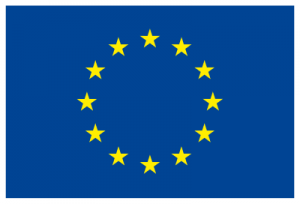Proceedings of the Final RICHES International Conference, “Identity Matters”, which took place in Amsterdam on 14 and 15 April 2016.
Read More →
This project has received funding from the European Union’s Seventh Framework Programme for research, technological development and demonstration under grant agreement n° 612789.
Identity
D8.5 Cultural Heritage in a Changing World
Report describing the methodology statement of the development of the book entitled Cultural Heritage in a Changing World. The central purpose of this collection of essays is to make a creative addition to the debates surrounding the cultural heritage domain.
Read More →European Policy Brief. European Minorities and Identity: strengthening relationships for a sense of belonging in the digital era
This policy brief discusses the main findings of the study conducted in RICHES about digital CH websites and their contributions towards the development of a European identity that encapsulates the diversity of communities across the continent. It offers a series of recommendations, which can contribute to the understanding of a European identity and strengthen already existing relationships.
Read More →RICHES Think Paper 03. Cultural Heritage Festivals: Belonging, Sense of Place and Identity
This RICHES Think Paper considers the role of cultural heritage festivals in contributing to notions of belonging, sense of place and identity. It argues that with increasing migration across Europe, there is a need for more in-depth research to examine the extent to which cultural heritage festivals such as London’s Notting Hill Carnival could add to the promotion of greater European integration and social and economic development.
Read More →European Policy Brief. The impact of European water policy on the water CH
This policy brief summarises the findings of the MEMOLA project with regard to the impact of European water policy on the water cultural heritage associated with historical irrigation systems. The brief also presents suggestions for policy interventions in order to establish the mechanisms and criteria for the delimitation of their values and for their protection.
Read More →Mapping of Cultural Heritage actions in European Union policies, programmes and activities
This mapping report aims to contribute to the development of a strategic approach to the preservation and promotion of European heritage. It provides a wide (but not exhaustive) range of information about EU policies, legislation, programmes and funding opportunities relevant to cultural heritage.
Read More →European Parliament resolution. Towards an integrated approach to cultural heritage for Europe
European Parliament resolution of 8 September 2015 towards an integrated approach to cultural heritage for Europe (2014/2149(INI)).
Read More →European Commission communication. Towards an integrated approach to cultural heritage for Europe
Communication from the Commission to the European Parliament, the Council, the European Economic and Social Committee and the Committee of the Regions towards an integrated approach to cultural heritage for Europe (COM(2014) 477 final).
Read More →D4.1 European identity, belonging and the role for digital CH
Report outlining the results of a qualitative study that examined the importance of (digital) Cultural Heritage for identity-building processes within European communities and its role for the development of a European identity.
Read More →Food and Cultural Heritage in the urban age: the role of local food movements
Food has played a vital role in the formation of European cultural heritage. The production of food has shaped Europe’s rural landscapes, whilst spaces for buying and eating food shape cityscapes, ranging from distinctive restaurant quarters and local food markets, to anonymous peri-urban hypermarkets. Food is integral to everyday behaviours as well as moments of special celebration. It shapes individual and collective identities in a multitude of ways, symbolising nations and evoking individual memories of home.
Read More →